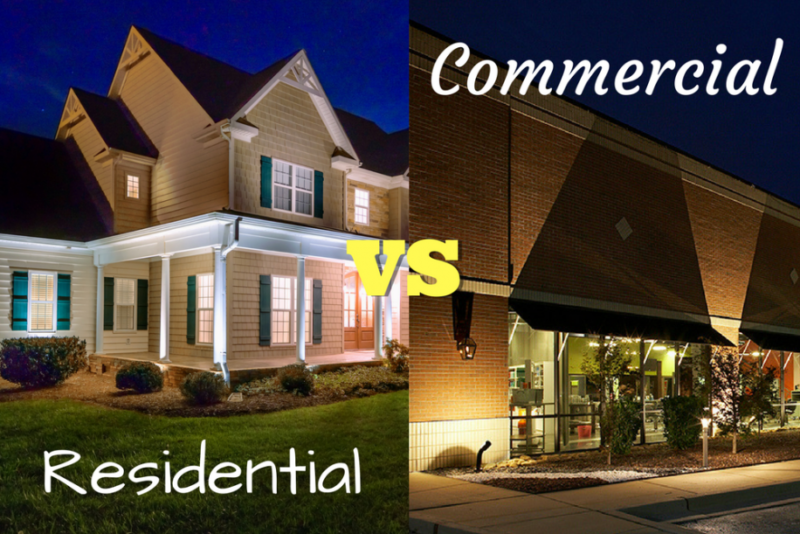Written by: Mimi Gebremedhin
Have you considered investing in commercial or residential and wondered what the best option is? Both are very different with their own challenges and it takes time to understand. For your money, commercial properties typically offer more financial reward than residential properties.
Most people are familiar with single family residential from personal experience so people who are just starting out to invest, too often assume that it might be less complicated which is somewhat true. Commercial properties are much more complex and could feel intimidating. In my opinion any investors coming into the market to make money need to think of investing as a business, and most business have risk. If your main motive is to make money picking what is easy is not necessarily the answer. To determine the best option here are some Pros and Cons.
Residential Advantage:
If everything lines up well, you can make a lot of money from a rental property. But first you need to know how much the house costs, cost to repair, what it will rent for on current market and the potential for resale.
Income Stream – The biggest benefit of owning a rental property is that the tenant will provide you with a direct income. Ideally more to cover monthly expense. Example; Assuming Property sell for $500,000 @ 35% down, 2.25% interest rate and $3,000 Tax = $1,700/month x 12 = $20,400 mortgage per year. Assuming Rental Amount is $2700/month x 12 = $32,400 – 7% vacancy rate = $24,300.
Property Value Growth – While a loan is being paid down, you stand to gain from an increase in the property value over time when you sell.
Always in demand – We all need a place to live, even in bad economy therefore no shortage of tenants.
Residential Disadvantage:
Low Rental Amount – Follow market value. If Landlord choose to increase rent amount they must follow the guideline set out by Residential Tenancies Act (RTC), and the maximum allowed is 1.5%
Tenant problem -You may perform your due diligence in prospecting your potential tenant but if you end up with tenant from hell, prepare to take on more responsibilities, Example: can’t change a light bulb, complaining neighbors, smoking you name it’s all on you. You can add clauses to your agreement of lease, but the law does not enforce most rules created by landlords.
Nonpayment – The mortgage must be paid out of pocket whether tenants pay or not. Dealing with tenants for nonpayment can be challenging. You can try evicting the delinquent tenant; however tenants are protected by the Residential Tenancies Act and in contrary, the law in Ontario isn’t very sympathetic towards landlords, resulting in a lengthy eviction process and proceedings costs involved.
Commercial Advantage:
Just the same as residential investment, you must know the cost of property, cost to fix and the potential for resale. This can be understood by the income approach which is a method that allows investors to estimate the value of a property by taking the net operating income (NOI) approach of rent collected and dividing it by the capitalization rate. Capitalization rate is based on the income that the property is expected to generate. For example: if a property was listed for $1,000,000 and generated an NOI of $100,000, then the cap rate would be 10%.
Higher Rental Amounts – The obvious advantage is the earning potential is higher. Landlords apply a Triple Net Lease which means the tenant is responsible for paying Taxes, Maintenance and Insurance as well as covering their own utilities.
Longer lease and Property Upkeep – Most businesses get established in one location and therefore will not move often. A standard lease term is usually 3-5 years, with a best scenario of 10 years. Business owners take pride in their businesses therefore will keep and maintain their store and surroundings clean
Contract is Legally Binding – Unlike residential tenancy, the law protect the Landlord. If a commercial tenant doesn’t pay their rent or fail to fulfil the contract then the Landlord can evict, through specific actions, such as changing the locks.
Commercial Disadvantage:
Tenant Turnover – One of the greatest risk is to find suitable tenants once it becomes vacant.
Property Taxes – As property value increase, so do the taxes that the owner must pay
Zoning – The land and structures that make up a commercial site are typically zoned for a certain use.
If my list left you with more questions than answers, please don’t hesitate to contact me.

